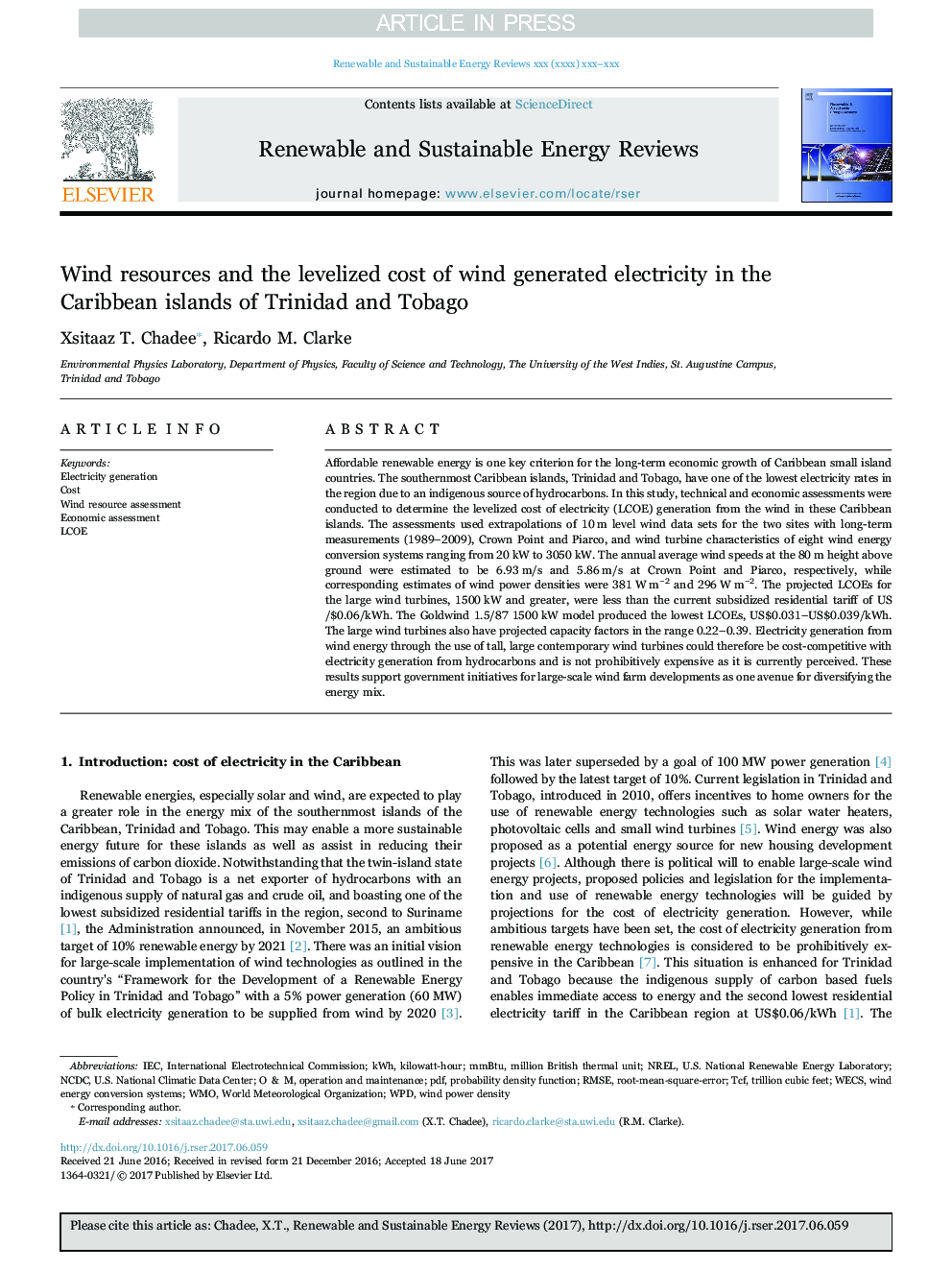| Article ID | Journal | Published Year | Pages | File Type |
|---|---|---|---|---|
| 8112365 | Renewable and Sustainable Energy Reviews | 2018 | 15 Pages |
Abstract
Affordable renewable energy is one key criterion for the long-term economic growth of Caribbean small island countries. The southernmost Caribbean islands, Trinidad and Tobago, have one of the lowest electricity rates in the region due to an indigenous source of hydrocarbons. In this study, technical and economic assessments were conducted to determine the levelized cost of electricity (LCOE) generation from the wind in these Caribbean islands. The assessments used extrapolations of 10Â m level wind data sets for the two sites with long-term measurements (1989-2009), Crown Point and Piarco, and wind turbine characteristics of eight wind energy conversion systems ranging from 20Â kW to 3050Â kW. The annual average wind speeds at the 80Â m height above ground were estimated to be 6.93Â m/s and 5.86Â m/s at Crown Point and Piarco, respectively, while corresponding estimates of wind power densities were 381Â WÂ mâ2 and 296Â WÂ mâ2. The projected LCOEs for the large wind turbines, 1500Â kW and greater, were less than the current subsidized residential tariff of US /$0.06/kWh. The Goldwind 1.5/87 1500Â kW model produced the lowest LCOEs, US$0.031-US$0.039/kWh. The large wind turbines also have projected capacity factors in the range 0.22-0.39. Electricity generation from wind energy through the use of tall, large contemporary wind turbines could therefore be cost-competitive with electricity generation from hydrocarbons and is not prohibitively expensive as it is currently perceived. These results support government initiatives for large-scale wind farm developments as one avenue for diversifying the energy mix.
Keywords
LCOEWMONRELRMSEWECSTCFWPDNCDCMMBTUEconomic assessmentWind resource assessmentProbability density functionwind power densityElectricity generationWorld Meteorological OrganizationWind energy conversion systemsoperation and maintenanceCostPdfInternational Electrotechnical CommissionIECkWhkilowatt-hour
Related Topics
Physical Sciences and Engineering
Energy
Renewable Energy, Sustainability and the Environment
Authors
Xsitaaz T. Chadee, Ricardo M. Clarke,
